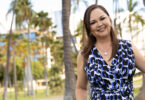8 resolutions every CRS should make this year.
By David Tobenkin
A new year has arrived and so, too, the call for New Year’s resolutions. In addition to shedding a few pounds, spending more time with family and closing a few more transactions, is there perhaps room on the 2017 resolutions list for a few ideas to improve the real estate sales profession as a whole? Some CRS members thought so and shared their ideas for elevating the profession in 2017. Here they are:
Resolution One
We will say “no” to representations that would force us to compromise our professional standards.
An example is refusing to represent or show clients properties that have not been properly prepared. Carpet stains or undue messes do not improve the image of the profession, says Shawn Cunningham, CRS, founder of Las Vegas, Nevada-based Cunningham Group Real Estate Sales. “I see homes regularly like this, and while I understand some people have challenging situations, as an agent, I have turned away clients in these situations,” Cunningham says.
Resolution Two
We will help less-accomplished real estate professionals improve their tradecraft.
The threat is not just the danger that marginal professionals will botch a particular deal, but also that they will erode client opinion of the profession and of the services being provided, and thereby open the door for other types of competitors, be it Redfin, Uber or others, to displace real estate professionals in the minds of consumers, Cunningham says.
“If you are an agent in the field for many years who is knowledgeable, you must aid the agents who are less experienced to get to the closing table without liability or issue,” says Shawn Heck, CRS, an associate broker at Houma, Louisiana-based Heck Realty Inc. “My resolution for this situation has been to get involved with my local board and teach classes for new agents on business etiquette and protocol, as well as training them on our MLS system.”
She is not alone in providing training efforts. “My office [John L. Scott] offers weekly classes to all agents covering forms, legal issues and technology applications,” says Scott Lewis, CRS, a broker in Ashland, Oregon.
Resolution Three
We will push for structural reforms to improve professionalism and the profession’s image.
Many call for improvements to the image of the industry and for steps to move it in the direction of professions like law and accounting by requiring more formal training and higher licensing standards. “The answer always starts with the question concerning whether the state requirements to obtain a license are too low and does the bar need to be higher,” says Cynthia S. Joachim, CRS, a Gulfport, Mississippi-based broker associate at Coldwell Banker Alfonso Realty, Inc. “Requirements vary from state to state, and there is no doubt that some states have fewer requirements than others and vice versa. There will be no way to equalize that without the regulators getting on board with stricter licensing requirements being recommended and the license law model reflecting that.”
Many survey respondents also call for more formal education and credentialing. “It’s my understanding that in many states, the requirements for obtaining a real estate license are very minor: a high school diploma and pre-licensing class that you can sometimes take totally online, which can contain information that is not often needed in the day-to-day practice of our industry,” says Nancy Metcalf, CRS, a REALTOR® at Coldwell Banker Pacific Properties in Honolulu, Hawaii. “Perhaps stricter pre-licensing requirements would decrease the number of people doing it as a hobby, or part-time, or because they think it’s easy money.”
Resolution Four
We will hold each other accountable and build in financial consequences to transactions to help ensure high professional standards.
“Sellers and listing agents should discuss the seller/buyer agent experience during the listing presentation,” says Clint Freeman, CRS, a broker associate at Ridgecrest, California-based Coldwell Banker Best Realty. “The seller and seller agent can write and sign a document that states what is expected of them and the future buyer’s agent. The buyer agent’s commission will be set, but will also be based upon the work that is expected, performed and agreed to. REALTOR® behavior will change only when it begins to hit the pocketbook.”
Resolution Five
We will run our real estate practices as businesses rather than as personal endeavors.
This goal seeks to infuse professional, business-like practices and systems that one expects of any well-functioning business into real estate practices. “Experienced and successful companies create business plans that span at least five, 10 or 20 years into the future,” notes Rob Mygatt, CRS, a Colorado broker associate and co-founder of Elevate Transition Programs (www.elevatetransitions.com), which provides training for real estate professionals on good business practices.
Selectivity can also be key, adds Laureen Kennedy, CRS, a sales associate at Coldwell Banker Residential Brokerage in Cheshire, Connecticut. “Agents need to treat their business as a business and not take on deals that are not profitable, spend too much on paying for leads, and take on every buyer or seller,” Kennedy says.
Resolution Six
We will continue to learn and grow.
In addition to educating those who need more basic training, for advanced practitioners, such as CRS holders, a key is rejecting hubris and a belief one knows all. Instead, it’s important to recognize that there is always more to learn and carve out the time to learn more in key areas, Cunningham says.
Resolution Seven
We will encourage others to join and promote CRS.
One of the most effective methods that can improve the profession is to encourage more real estate professionals to attain the CRS designation and to adopt its standards, says Matt Meister, CRS, associate broker, Coldwell Banker Town & Country Realty of Kearney, Nebraska, 2014 President of the Nebraska REALTORS® Association and a former board member of NAR’s National Professional Standards Committee. “Among real estate associations, CRS does the best job of promoting competence, including an image of real estate professionals as highly professional and following through with teaching and training people to be the best they can be,” Meister says. I am a huge believer in the organization and what it stands for. If every REALTOR® got a CRS designation, we would not have an image problem.”
Resolution Eight
We resolve to recognize and do our part to combat substandard day-to-day practices.
CRS members say there is no shortage of areas for improvement. Substandard practices that many said should be high on the abolition list include the following:
- Flakiness—Failure to speedily return calls, show up at a prearranged time and keep promises. This can mean combating similar flaky behavior by clients, too.
- Ignorance—A lack of knowledge regarding which forms to fill out and how to complete them was the most cited example. Sloppiness and laziness—One example is failing to ensure that marketing pictures are professional and accurately represent a property in a manner that clearly shows its strengths—including using high-quality, professional photos rather than smartphone photos—and practices that alert all that a professional marketer is at work, Cunningham notes. This also includes working with owners and tenants to make sure the property is in the best possible shape to be seen by potential buyers.
- Etiquette—An example, Cunningham notes, is for both the listing agent and the home seller to step outside to give the potential buyer some thinking room.








